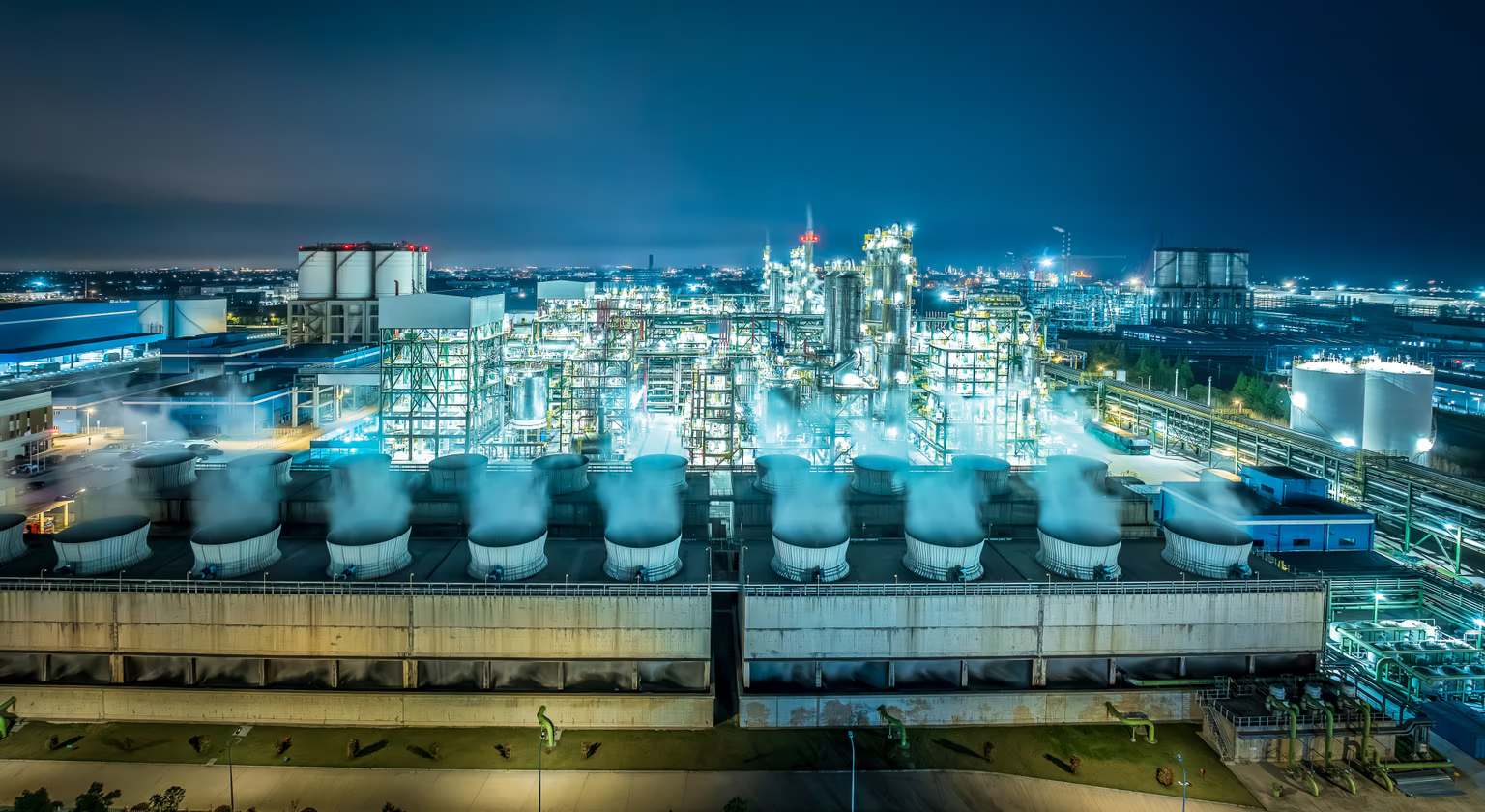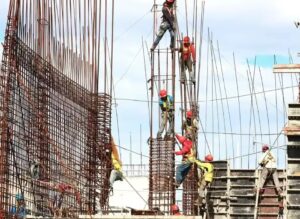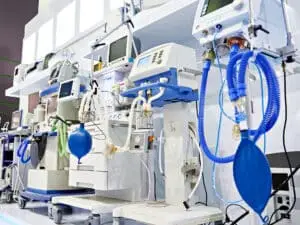Industrial plants are large-scale facilities that produce goods and consist of a mix of equipment, machinery, and materials. They are also called manufacturing plants, factories, or production plants.
Unfortunately, people working at industrial and chemical plants can experience accidents that create long-term health issues and severe injuries. For example, someone may slip on an industrial plant’s wet floor, causing them to hit their head and develop a traumatic head injury.
If you or a loved one are seeking legal help during a chemical plant explosion or another industrial plant accident, contact Morris & Dewett Injury Lawyers. We have the experience, resources, and expertise to take on defendants of any size.
Common Types of Industrial Plant Accidents
Here are the most common industrial accidents:
- Slips, trips, and falls can happen when unexpected materials — such as debris, snow, ice, water, and other liquids — are left on surfaces.
- Machinery malfunctions result from defective machinery design, lack of maintenance, insufficient staff training and experience, staff negligence, and lack of safety guards. Common injuries from machinery malfunctions include crushing injuries, eye injuries, burns and electric shocks, amputations, lacerations, and sprains.
- Chemical exposure may occur when toxic industrial chemicals in gas, liquid, or aerosol form enter the body through the skin, inhalation, or digestion. It can lead to cancer, organ damage, infertility, allergies, and other long-term damage.
- Repetitive strain injuries are damage to your nerves, tendons, or muscles. These injuries develop slowly and can happen when industrial plant workers are gripping, bending, holding, straightening, clenching, twisting, or reaching for extended periods.
- Electrocutions and burns happen when workers or objects touch or come too close to electrical hazards, such as energized parts and fire from faulty installations or electrical equipment.
- Traumatic injuries occur when you are suddenly hurt and have serious injuries such as broken bones, bleeding, or head injuries. They can be caused by slips, trips, falls, machinery malfunctions, electrocutions, and burns.
Causes of Industrial Plant Accidents
Here are the most common causes of industrial manufacturing plant accidents:
- Poor safety protocols: People who work at industrial plants with inadequate or nonexistent safety policies for employees and operations are more likely to experience work-related injuries. This is because employees may not have clear instructions on operating equipment or handling hazardous situations safely.
- Inadequate training: Employees with inadequate training may be unable to recognize potential hazards or properly follow safety guidelines, leading to dangerous situations and injuries. For instance, untrained workers may mishandle toxic industrial chemicals and fail to use personal protective equipment (PPE) properly. This can cause chemical exposure that results in infertility, cancer, and other life-altering conditions.
- Equipment failure: Defective or poorly maintained machinery — such as worn-out moving parts or malfunctioning safety systems — can cause serious accidents such as explosions, leaks, or structural collapses.
- Negligence: Ignoring safety inspections, overworking industrial workers, and rushing procedures can put people at risk of injury.
- Environmental factors: Flooding, severe weather, and natural disasters can damage the industrial plant infrastructure, leading to equipment malfunctions, hazardous material spills, electrical failures, and increased risk of workplace accidents and injuries.
Legal Considerations Following an Industrial Accident
If you or a loved one have experienced an industrial accident, you may be eligible to file a lawsuit for compensation and justice against the industrial plant and other responsible parties. Here are important factors to consider when thinking about taking legal action.
Statute of Limitations
The statute of limitations is a deadline for filing lawsuits. Its duration depends on the state where the industrial plant accident happened and whether the lawsuit involves personal injury or wrongful death.
Personal injury lawsuits are filed by people who developed injuries and other losses due to another party’s negligence — for example, an industrial plant manager’s failure to provide adequate training. Meanwhile, wrongful death claims are filed by family members on behalf of a loved one who died due to the recklessness, negligence, or intentional actions of another party. For instance, you may be able to file a wrongful death claim if a family member worked at an industrial plant and died due to an accident caused by equipment failure.
For example, Texas and Louisiana require personal injury lawsuits to be filed within two years of the accident. As for wrongful death claims, Texas requires them to be filed within two years of the accident, and Louisiana requires them to be filed within one year of the deceased’s death.
If you don’t file your lawsuit before your applicable statute of limitations, you may be barred from seeking compensation and justice for your losses. That means you should act as quickly as possible once you have determined you are eligible to file an industrial plant lawsuit.
Liability Issues
To file a lawsuit against the parties responsible for your losses, you must identify who is liable or legally responsible for your accident. Liability may arise from the party’s actions or inactions or the actions of individuals for whom the party is legally accountable.
To prove a party is liable for your losses, you must show that the responsible party or parties:
- Owed you a duty of care — a legal duty to take appropriate measures to avoid causing foreseeable harm to others
- Breached that duty
- Caused the accident resulting in injuries and other losses
To prove these points, you must:
- Gather evidence, such as safety logs, maintenance records, emails, text messages, video recordings, photographs, and eyewitness testimonies
- Use third-party expert testimonies to identify the cause of the accident and determine the role of unsafe practices and defective equipment
- Identify all potential defendants so you can seek the justice and compensation you deserve
However, determining liability is often easier said than done, especially since multiple parties may share liability. Common challenges include:
- Lack of clear evidence: Missing maintenance logs, incomplete safety records, or uncooperative witnesses can make it difficult to establish fault.
- Multiple defendants: Determining the proportion of fault can be complicated when several parties are involved.
- Disputes over causation: Defendants may argue that factors beyond their control, such as environmental conditions or worker errors, led to the accident.
Working with a skilled industrial accident lawyer will help you navigate these liability issues. Contact a refinery accident lawyer to learn more about filing industrial plant lawsuits.
Third-Party Claims
Employers are not the only parties against whom you can file a workplace accident lawsuit.
Third partiescan also be held liable in some cases. These include:
- Independent contractors working at the industrial plant may be held liable for contributing to or causing accidents through errors in their work or negligence.
- Vendors or suppliers could be liable if they provide faulty parts or materials that lead to injuries at the industrial plant.
- Property owners could be held liable if unsafe property conditions contribute to or cause the industrial plant accident. For example, if a poorly maintained building structure collapses or faulty electrical wiring causes a fire, the property owner may be held responsible for failing to address these conditions. This liability applies if the property owner knew the risks and neglected to take reasonable steps to prevent harm.
To build a solid third-party claim, you should work with an experienced industrial accident attorney to gather evidence. They will then use that evidence to build a strong case and negotiate with opposing parties for the maximum settlement. If the other sides refuse to settle for an appropriate amount, your lawyer can fight for your rights in court.
The Role of Attorneys in Industrial Accident Cases
If you or a loved one have been hurt in an industrial plant accident, you should look for an experienced industrial plant construction lawyer. Although it is technically possible to file a lawsuit by yourself, doing so can be risky due to the complicated legal landscape.
Here’s what trusted industrial accident attorneys like the ones at Morris & Dewett can do for you:
- Provide legal advice by telling you about your rights, explaining relevant laws, and offering the best strategies for your case
- Build a strong case by gathering evidence, such as medical reports showing your injuries, emails showing how you were injured, and workplace policies that demonstrate employer negligence
- Negotiate with opposing parties on your behalf
- Fight for your rights in court if the opposing parties refuse to settle for a fair amount. Note, however, that while court verdicts are generally higher than settlement payouts, you may get nothing if your lawyer loses. Talk to your lawyer before deciding to go to trial.
To learn more about the role of attorneys in industrial accident cases, contact a Morris & Dewett injury lawyer today. Our lawyers have won over $1 billion in verdicts and settlements combined, as well as the largest personal injury verdict in Louisiana history: $409 million.





